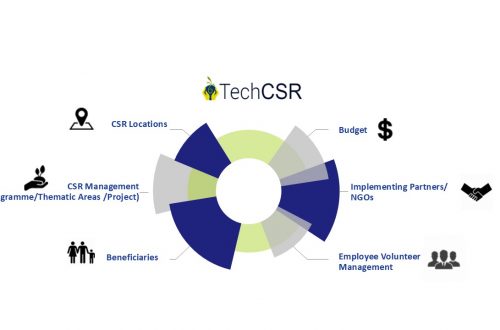
Five ways in which Artificial Intelligence is useful for small and medium size companies
Is Artificial Intelligence (AI) viable for small and medium sized businesses? The answer is, absolutely yes! For many non-technical business people however, understanding Artificial Intelligence may seem like a huge challenge.
Artificial Intelligence has often been shown in science fiction movies and portrayed on television as being a powerful technological force that often seems to have a mind of it’s own. App like Facetime is using AI to help users to provide best video calling results. It is often portrayed as being incredibly complex, running on impossibly massive and expensive super computers, and causing great concerns at the hands of powerful and evil villains. It’s easy to take a cue from these science fiction movies and believe that an AI system is a complicated beast and can only be understood by mad scientists and crime fighting super heroes, but this attitude is mistaken.

The truth is, AI may seem complex, but often it’s much simpler than that most of the time. It’s just a name for software that helps make decisions or control processes in a seemingly intelligent way using data and logic. It parses information and comes up with results based on applying decision logic to that data.
In reality, AI is everywhere around us already these days. We have artificially intelligent devices and software running in our homes, built into our phone and apps, in our modern vehicles and throughout the places we visit every day. It has become a mission critical component of many businesses and for some, lies at the very root of their company’s business model itself.
Artificial intelligence has become better understood in the workplace since the days of scary science fiction films and some big names such as Bill Gates and Elon Musk have become its evangelists. AI is a lot like many other technologies that began as exclusive to industry pioneers and could be confusing for early adopters.
As with any popular technology applications, software and hardware companies are continuously developing AI applications and creating useful tools that apply AI to solve new problems and create new opportunities every day. They are intent on making AI accessible to a much wider range of businesses. As AI becomes more common and AI based tools become more prevalent in companies of all sizes, it is important for your business to take advantage of what this kind of technology has to offer.
Here are five useful places you can make use of Artificial Intelligence in your business.
Customer Service
We’ve all seen FAQs and Knowledge Bases on support websites. We’ve probably also talked to automated attendants when calling in for support on a product or service. AI can often serve as a front line to handle repetitive inquiries and offer common solutions without tying up a phone operator or support staff resource. Tools such as chat bots, search engines and phone attendant automation fall into this category of artificially intelligent tools.
A significant amount of human time can be saved for both employees and customers when smart tools are on the front lines fielding questions, arranging appointments, and serving information to users from intelligent systems operating on rules and data that can help them deliver the results a person needs without having to actually involve a person in the work each and every time the same things come up.
AI tools can help a large number of customers, 24×7 year round without needing a human presence during times when the business is closed for operating hours or on holidays.
Human Resources
HR departments can use AI now to manage online application intake. It can parse incoming resumes and applications, store them, sort them and even make preliminary decisions about the candidates. The candidates then may be processed, using criteria and logic in an AI system to examine the documents before a human has to be involved.
AI tools can help track workforce knowledge and skills, optimize scheduling for staffing needs, or optimize and track routing for mobile employees.
AI can be used to better match employees with groups and teams and tasks, and can improve overall workplace satisfaction by tracking and applying changes based on metrics collected in automated ways.
Believe it or not, that simple vacation “away message” you set up in your email when you went to the beach last summer, was an artificial intelligence tool too. It knew how to answer your email for you while you were away and allowed you to maintain a level of availability and a flow of information with your correspondents without requiring intervention a good bit of the time.
Logistics & Inventory Management
On time, every time, and always in stock. These are major goals for products and services based businesses alike. No one wants to lose a customer to the competitors because an item was not in inventory or personnel were not available to serve the client’s needs in a timely fashion.
AI can help here too, with tracking tools, inventory management tools, price monitoring and adjustment tools and more. Supply chains have always been data-driven, and AI tools can thrive on the insights coming from the data collected every day in a business. Take the giant Amazon.com for example.
From searching for and finding the product you want to purchase, to order processing, warehousing, fulfillment and shipping to your door, all of these steps are supported by various AI tools and processes along the way. Often a human may only be involved in a few steps in the process from end to end. Your company may not be as big as Amazon, but there is no reason you cannot implement some basic AI in even the simplest of websites or retail operations.
For just one example, smart product suggestions and related product suggestions are just some of the simple ways to enhance an e-commerce site, often using affordable off the shelf platform plugin modules that are easy to install, that can make a massive difference in checkout sales numbers.
Sales & Marketing
Targeting customers and finding new clients has always been the primary challenge of any company’s sales and marketing departments. In the past, companies used surveys, user opinion panels, mail in post cards, and sales people’s anecdotal feedback to guide sales and marketing efforts. In the modern world, however, we collect massive amounts of information and data that can be examined using AI to find patterns, trends and effects of actions taken with marketing and sales approaches and materials.
Big data and data intelligence have been buzzwords for years. AI solutions for marketers leverage big data to examine current traffic and advertising performance to make real-time suggestions, recommendations and even on-the-fly changes for the most valuable ads and strategies worth pursuing. What might take a human marketing team days, weeks or even months to evaluate in terms of what worked or what didn’t work, can be accomplished in mere minutes with AI.
An AI platform will conduct tests on the data continuously. Using data informed logic, we can predict if a certain amount of a budget goes into a specific strategy, based on historical success, if we’re likely to make a targeted amount of money. The machine learning working behind the scenes allows the system to simultaneously take into account each advertisement served, each order received, it’s source and the results to influence future decisions about where more ads should be placed, who should be shown the ads and what forms of advertising are resulting in the most conversions or leads.
Competitive Analysis
Paying careful and close attention to your competition can feel like an impossible task sometimes. Using AI can help here too though. With AI tools, companies can track competitors across most digital channels, including social media, to gather a variety of information that users can then apply to their own company’s pricing, marketing language and more.
In addition, AI systems can identify and analyze trends in various markets to deliver actionable information for more strategic planning. In the old days, secret shoppers would visit stores and note prices on competitor’s items then manually report their findings to their employers who would in turn make manual adjustments to the stock on their own shelves. Now, an AI tool can gather the same information online in minutes, and automatically make rules based price adjustments on the fly instantly across stores and PoS systems with just a few clicks of a button or two.
A competitor’s online traffic can be observed and changes made to your own materials to better capture what is working and what isn’t in terms of customer engagement, conversion and retention. AI can help you properly position yourself in a competitive marketplace, or illuminate new channels to pursue and help identify trends, patterns and cycles in your industry that can be taken advantage of when beneficial or avoided when detrimental. AI can take a lot of the guesswork out of operating your business and give you tangible, concrete information you can act on!
Using AI is the intelligent thing to do!
In general, Artificial Intelligence supports humans by helping to reduce manual, repetitive tasks and by optimizing productivity. Small businesses should start exploring and implementing AI right now as it’s only becoming more widespread and accessible every day.
From preventing repetitive work by expensive employees and freeing them up to do more valuable things, to finding and reaching new customers via smarter marketing, to better competing with the competition, the use cases go on and on, so it’s certain that using the right AI in your business is just the intelligent thing to do!
One thing is for sure, your competitors are probably already using AI or looking into it as well, so now is the time to take your business to intelligent new heights!

Specializing in providing world class, highly skilled, experienced and award winning dedicated teams and resources with a focus on GIS and Map based application solutions, as well as enterprise software development and mobile application solutions






One Comment
Kamala Streng
hi, impressive blog on greasy loss. parallel helped.